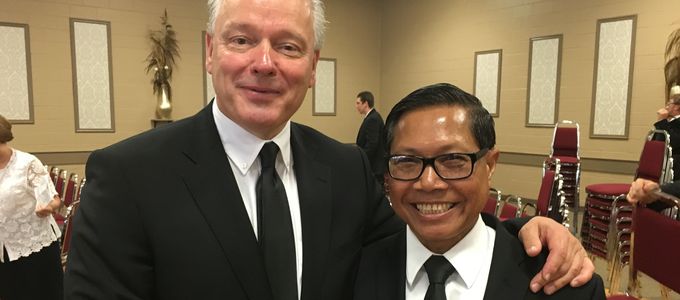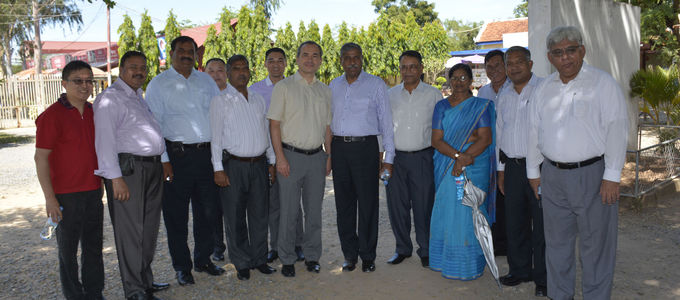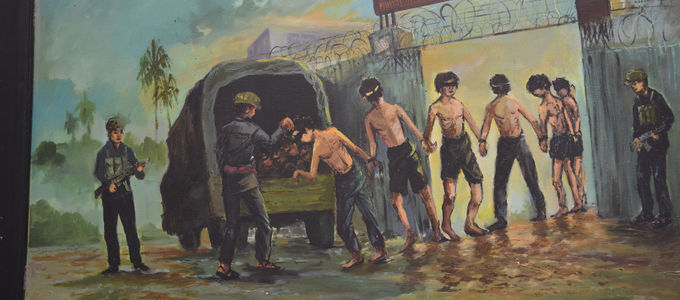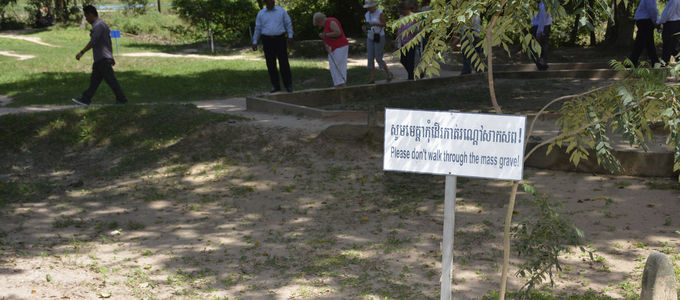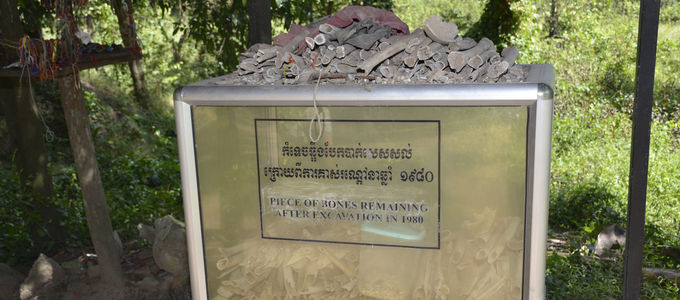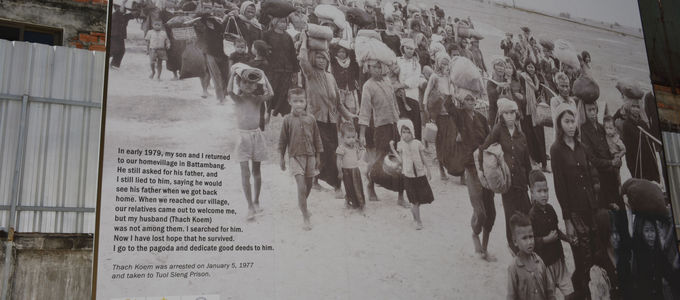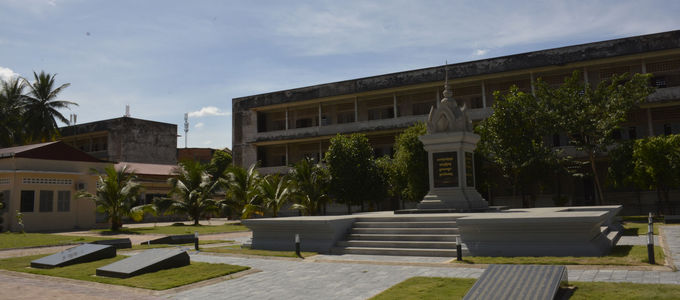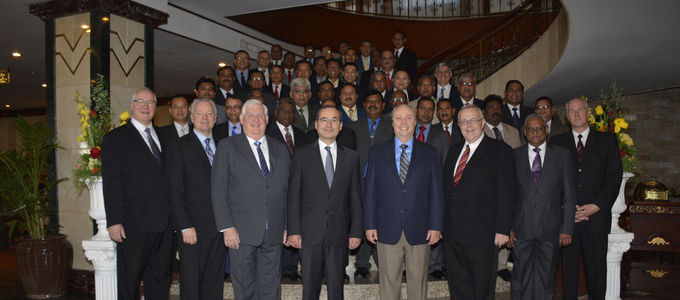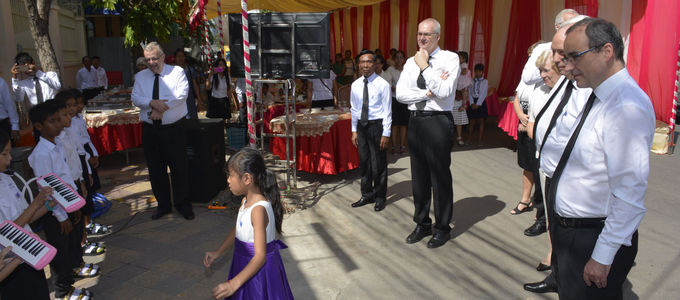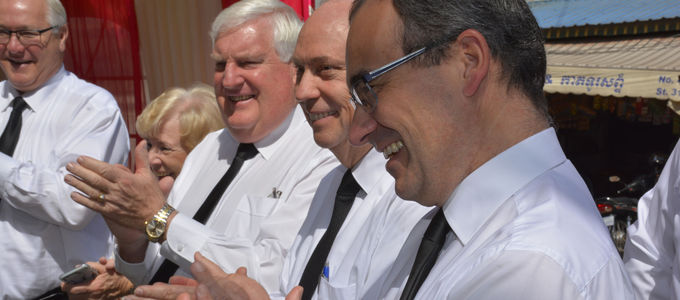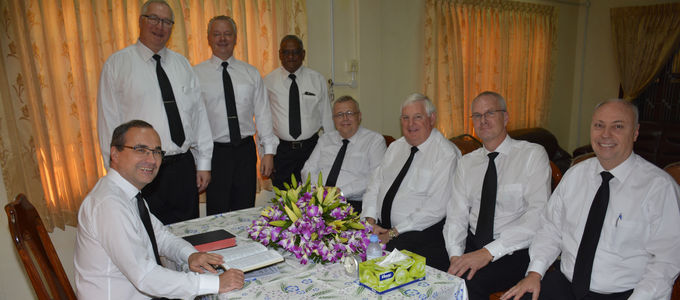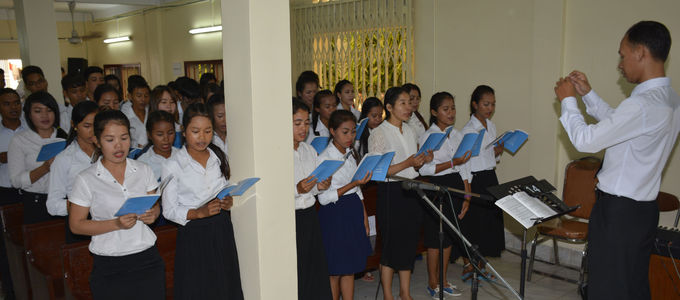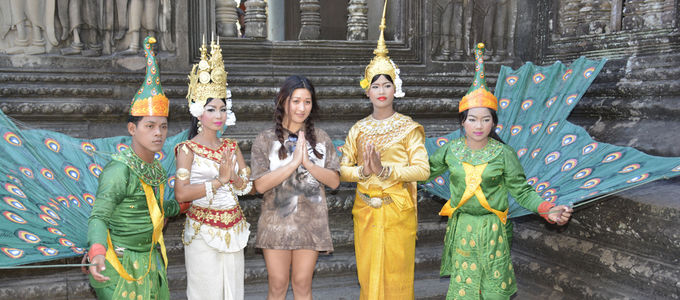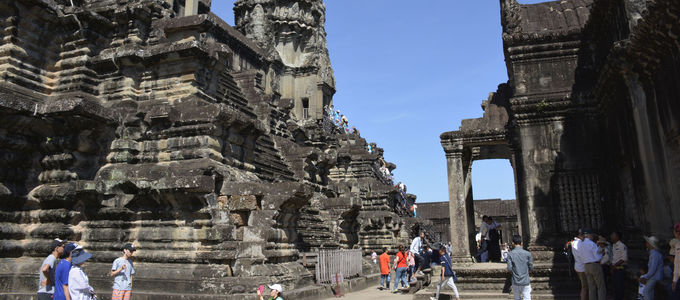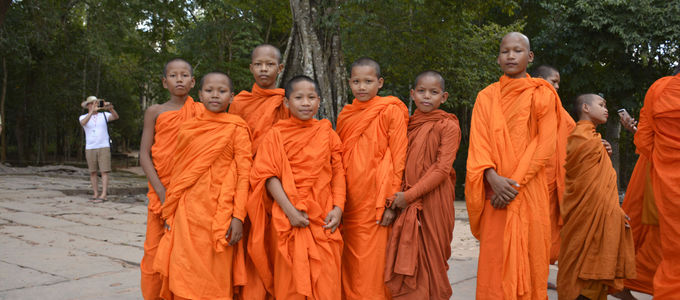When the congregation becomes your family—New Apostolic Christians in Cambodia
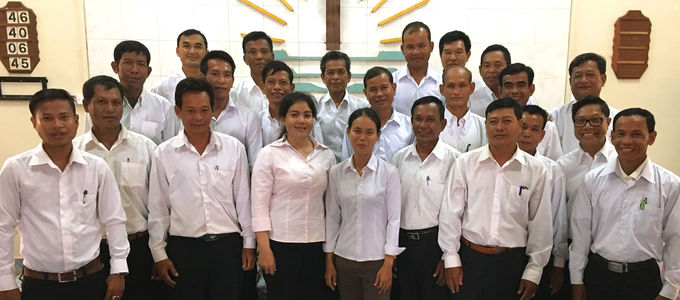
Cambodia—the name reminds people of the Killing Fields, the Khmer Rouge, and war. Yet this country situated between Thailand and Vietnam is becoming increasingly popular with tourists. And rightly so: it is a wonderful nation of warm, industrious people, says Apostle John Sobottka. He knows the land and its people like no other.
John Sobottka is a District Apostle Helper and lives in Canada. He has been travelling to South East Asia for many years in order to care for the local New Apostolic congregations. After so many years of missionary work in a land defined by Buddhism, he concludes: “In order to understand Cambodia, you have to understand its recent history.” The circumstances of the 1970s left a deep impact on the people there—to this day. At that time, the Khmer Rouge ruled the country. One of their political goals was to transform the land into a Communist, agrarian Utopia, says the missionary from Canada as he describes his impressions. “The people were driven from the cities and brought to work camps in the countryside.” There they either died—or were killed. The Killing Fields opened up their graves and a dramatic genocide began—a mass murder of its own nation. “Our New Apostolic congregations were also affected by this period of recent history,” summarises District Apostle Helper Sobottka reflectively. A number of people managed to make their way to refugee camps in Thailand. From there, many emigrated to Canada or the USA. Although the Khmer Rouge only ruled for four years, the lives of some two to three million Cambodians were snuffed out in the country between 1975 and 1979—and this in a nation with a total population of eight million people!
A new beginning
Today the country is home to some sixteen million people. Compared to the neighbouring countries, this population is rather small. When the work of the New Apostolic Church began in the country in 1989, society was only beginning to recover from the horrific trauma of the seventies. Practically all families had losses to lament. But life in society began anew. Economically speaking, the country had to start from zero. Over this period, the church became an anchor of hope for many. In the divine services they heard about the love of God in a loveless world. The congregation became their family. “That is what makes the work in Cambodia so special,” says the Apostle, “namely the search for love and a sense of belonging.” And he goes on to add, “Cambodia is a wonderful country. The people are warm and open, hospitable and industrious.”
Strong congregations in the country
In the twenty-first century, the country confronts new challenges. “Many church members have been here from the start, while others have emigrated to Canada or the USA. The second and third generations are now sitting in the congregations,” observes the Apostle. The increasing modernisation of the country has become a part of daily life. The emphasis on good education and secure jobs is starting to increase, and has begun to compete with the members’ commitment to their congregations to a certain degree. Nevertheless, the New Apostolic Church numbers over 165 strong congregations in the country, predominantly in the larger cities. Two young Apostles and two young Bishops take care of the congregations. “I travel to the country two to three times a year, and stay there between a week and ten days at a time,” says Apostle Sobottka, describing his workload. In this endeavour he is also supported by Bishop Voeun, who works with him in Cambodia, but also lives in Canada.
Looking ahead with gratitude
The New Apostolic Church in Cambodia totals some 80,000 members. “That is a lot of people for a country defined by Buddhism,” says the District Apostle Helper. A total of 540 ministers care for the congregations—and there are over 100 solid church buildings. Although Christian congregations are welcome, says the Apostle, there is one special requirement: once a Christian congregation—no matter what denomination—is established in a particular village, no others can be established there. In addition, it is extremely difficult to acquire land for building a church. “Non-Cambodians cannot purchase land,” according to the government’s rules. “For a church that is in the care of another country, this naturally poses some difficulties,” states the Apostle. “Nevertheless we will continue to pursue our way!”
Another thing that is especially moving, says Apostle Sobottka, is that “the friendships which originated in the refugee camps in Thailand are still going strong today. These people often saved one another’s lives. They supported and helped one another in times of need. And these are the same people who are still sitting in our congregations to this day. This makes me thankful and fills me with hope.”






